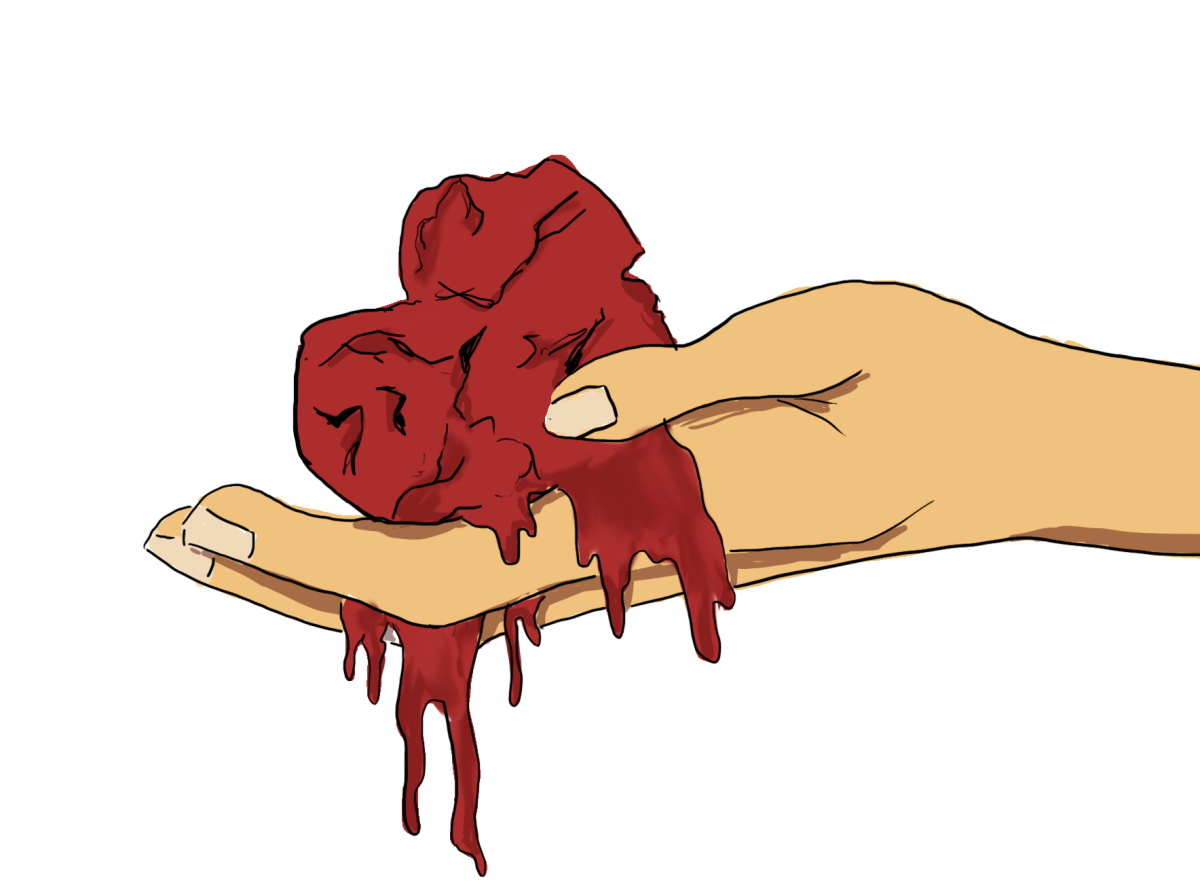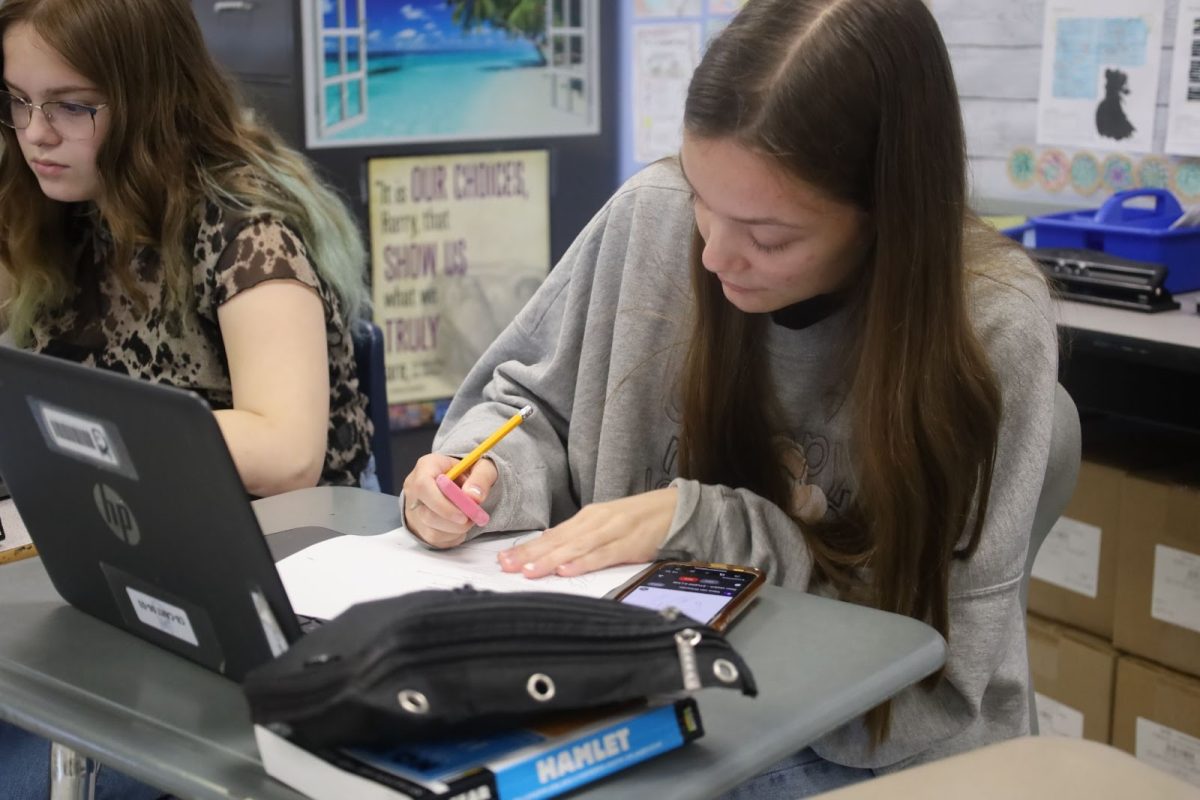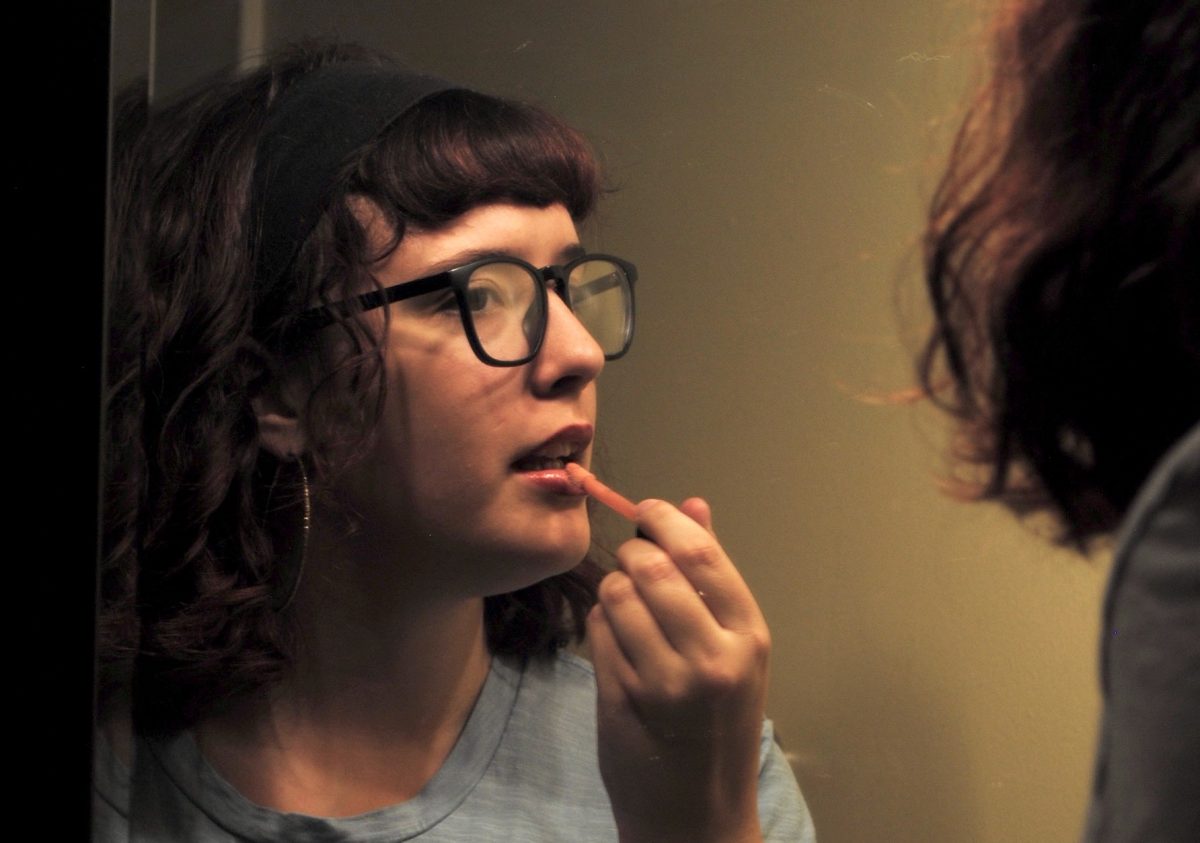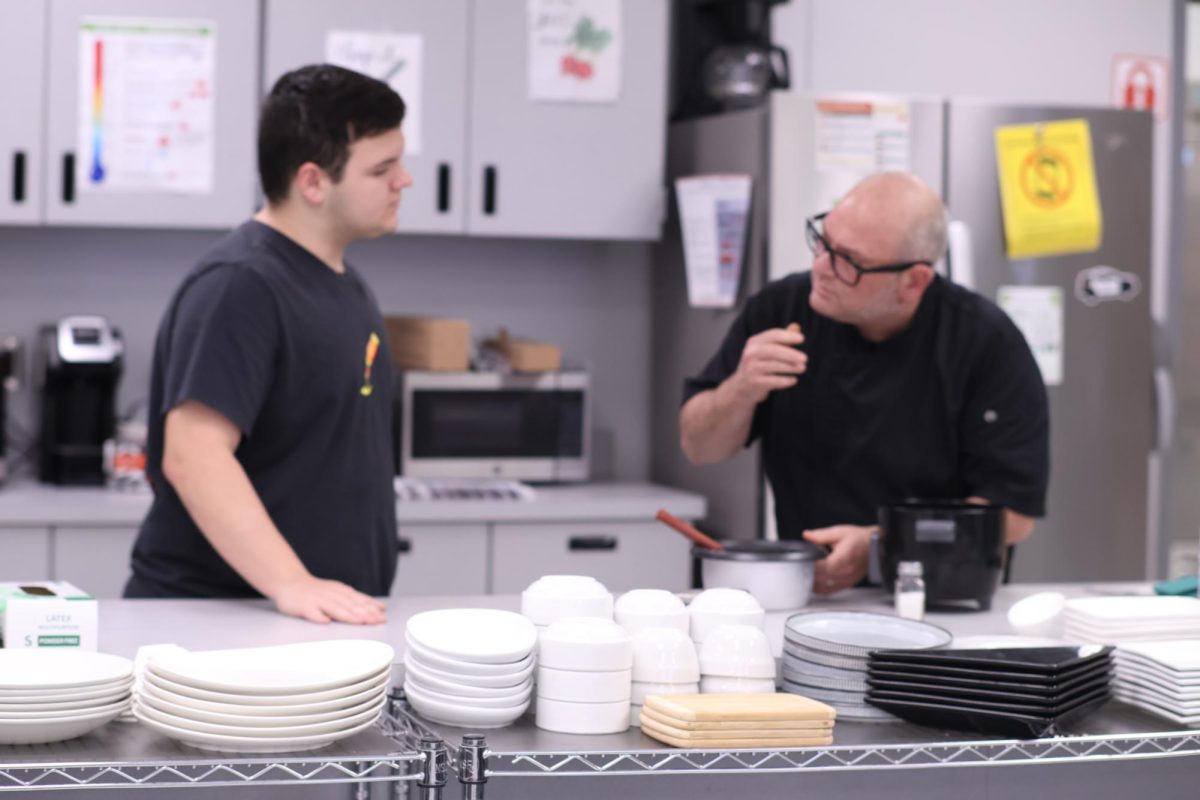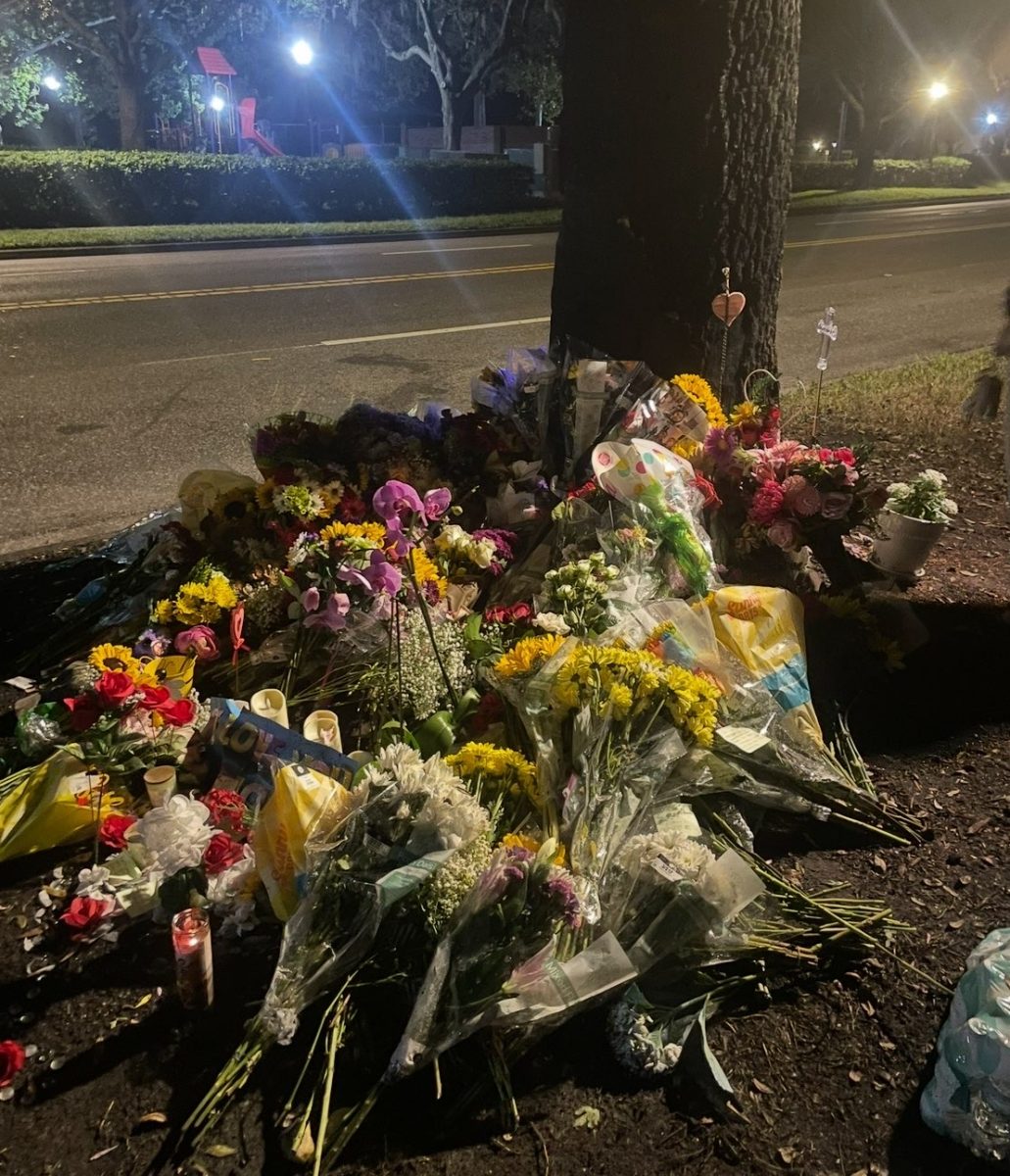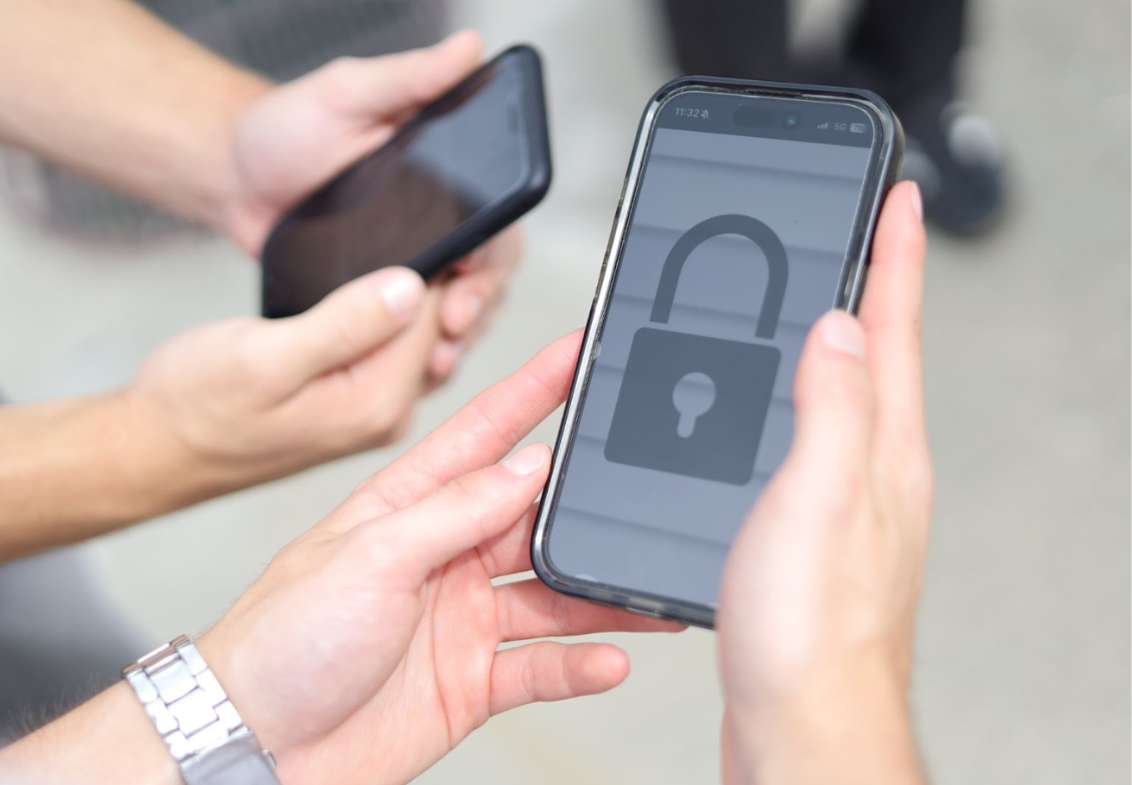Warning: This story contains discussion of abuse, sexual assault and other sensitive topics.
First, she told her best friend.
Then, she told more friends.
Next, she told her parents.
Everyone was sympathetic, but Zoey* felt nobody fully believed her.
People often wave away teenagers’ feelings, believing everything is over-exaggerated or even fake. If a teenager claims their high school relationship is abusive, it is usually overlooked as hyperbole. As a result, many high schoolers do not know how to speak out or handle abusive situations, staying stuck in harmful dynamics.
Defining abuse
There are multiple types of abuse including emotional, physical, digital and sexual. These terms are blanket statements for how many different types of abuse are seen in day-to-day life. Zoey* is a senior and had experienced most types of abuse throughout her six-month relationship.
“We were broken up when she told me she was coming over, even though I said no. The excuse to come over was to give me my things back,” Zoey said. “She would not leave unless I kissed her. She locked the car doors and screamed at me until I kissed her, just so she would leave.”
Sexual abuse
According to the National Abuse Hotline, this would fall under sexual abuse, which is defined as when one partner controls the sexual or physical aspect of a relationship.
Besides this behavior, Zoey also experienced coercion, as she was forced into actions without her consent. Her partner would ask her repeatedly to perform sexual acts until Zoey finally gave in.
Chloe* is a senior who has also experienced forms of sexual abuse. She was young and believed she was helpless at the time.
“I said no and he did it anyway,” Chloe said. “He knew I was uncomfortable with it but he did not stop.”
Victims can be manipulated into believing coercion or force with sexual activity is normal and okay, but it never is. Chloe experienced other forms of emotional manipulation in her former relationship as well.
“He told everyone I was a terrible girlfriend because I could not go to his sports game,” Chloe said. “He got so mad at me even though I had schoolwork to do.”
Emotional abuse
Emotional abuse is defined as non-physical behaviors that are meant to control or threaten someone according to the hotline.
Zoey was also affected by emotional abuse during her past relationship.
“After she did something to make me upset she would manipulate me by telling me I’m beautiful and trying to make me feel special—it just made me confused,” Zoey said.
Often, an abuser will compliment their victim after doing something wrong. This is to manipulate the victim into believing that the abuser did nothing wrong and still loves them.
It is important to keep in mind that although abuse does happen, there is a difference between regular relationship issues and abuse. Mistakes can happen, but when it becomes repetitive, it becomes a problem.
Olivia* is a junior who went through emotional abuse during a relationship where she was constantly misled, lied to and cheated on. Their relationship was rocky for two years, yet she found it hard to let go.
“I would blame a lot on myself and think everything was my fault. I could not understand how he could act one way then completely switch and manipulate me another,” Olivia said. “I was always so upset and it affected my school and personal life. I started to isolate myself.”
When trying to help a victim of abuse, an important aspect to understand is why victims cannot leave. Some reasons could be because they are scared, they blame themselves, they are in love with no reciprocation or they have nowhere to go for help.
Emma* is a sophomore who was threatened in a past relationship to the point of fearing for her safety. However, she stayed with her partner for multiple months because she felt she had nowhere else to go.
“They threatened to come to my house and sexually assault me unless I sent them revealing pictures—I was scared to do anything,” Emma said.
Digital abuse
In addition to emotional abuse, Emma also experienced digital abuse. Digital abuse is when the internet or social media is used to stalk, threaten or scare a victim.
“He Facetimed and called me to the point where he completely disabled my phone…I had to completely shut it down. When I turned it back on I had hundreds of texts saying how terrible I was and calling me a b****,” Emma said.
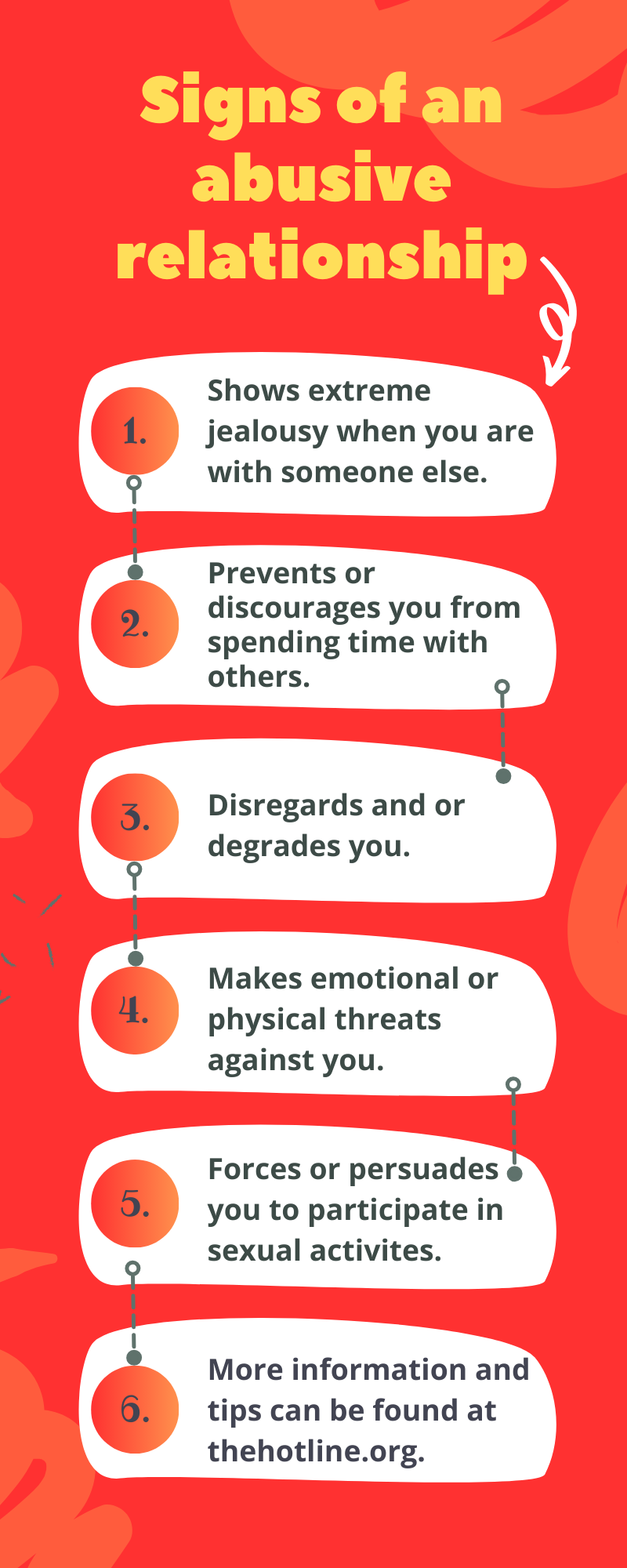 Physical abuse
Physical abuse
Another form of abuse is physical, the use or threat of physical violence to maintain control over a partner, which Emma also underwent.
“My hair was pulled, I was slapped, I was punched, I was kicked and left with bruises all over me,” Emma said. “People would just stare and talk behind my back about why I had bruises, [but] no one ever reached out.”
While Emma’s abuse was easier to detect, sometimes it is more subtle. Those who suspect someone they know is getting abused can reach out and offer help or just an ear to talk to. If talking to the victim is too difficult or is not helping the situation, talk to a trusted adult.
Why abusers abuse
While talking about abuse and bringing awareness to it is very important, it is also important to understand why people become abusers in the first place. One of the main reasons people abuse others is because they grew up with abuse around them and were taught it was normal. Although this is no excuse, it is important to understand where abuse may stem from.
According to the National Domestic Abuse Hotline, “Abusive people believe they have the right to control and restrict their partners’ lives. This is often because they believe their own feelings and needs should be prioritized in the relationship or because they enjoy exerting the power that such abuse gives them.”
How to get help
Even though many victims have a difficult time getting out of abusive relationships, the survivors in this story were able to get out and now strive to help others do the same.
“You can leave—I promise you are not stuck,” Chloe said. “Stand up for yourself and reach out for help, [and] eventually someone will listen.”
Chloe was able to leave after telling her parents how bad her relationship was affecting her, and they supported her throughout her emotional recovery. Emma was also able to find refuge in a concerned friend.
“I started to be known as ‘the girl who won’t leave’ around school, but then a friend came up to me and offered to help,” Emma said. “Since that day I never went back. Reach out to someone—it can save them.”
If you or someone you know needs help, call 1-800-799-7233 or text “START” to 88788.
*Victims asked to remain anonymous.

